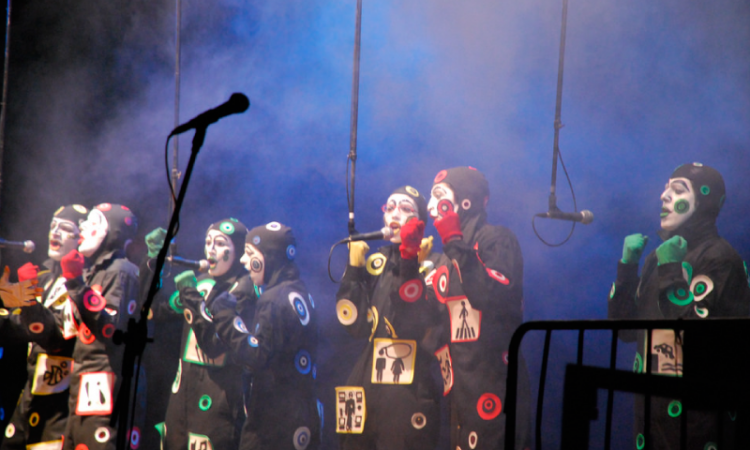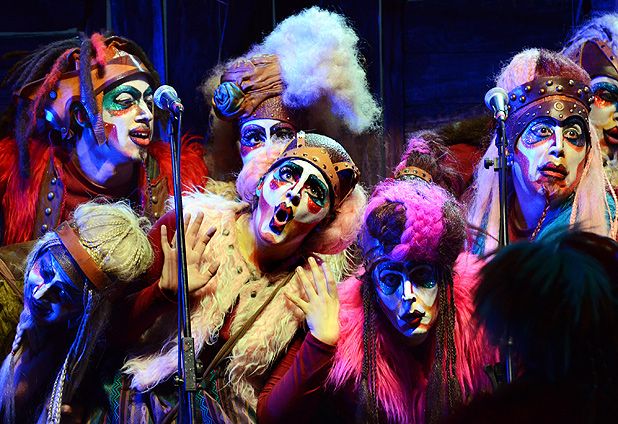The Murga Uruguaya is one of the most traditional and popular musical genres of the country. Year after year, the murgas are preparing for what will be a new carnival that extends throughout the month of February and early March, with neighborhood tabs expanded throughout the city of Montevideo and some regions of the interior, and the official contest of carnival groups that takes place in the mythical Theater of Summer, in front of the beach Ramirez in the Park Rodó.
Murga Uruguaya: a tradition that spans generations
The Murga Uruguaya has in its origin a strong connection with the murga of Cadiz, that arrives to Uruguay in the year 1909 when a chirigota is formed called “La Gaditana that leaves”.
The murgas of Uruguay have a format similar to the Spanish murgas of Tenerife and Las Palmas, being a kind of operas where letters of humor and protest, music, choral arrangements, staging, costumes and makeup are combined.
Currently the Uruguayan carnival is one of the maximum expressions of the country, and brings together thousands of people. The murgas are composed of 17 members on stage, distributed as follows: a director, thirteen singers who meet by strings according to their vocal tones (seconds, cousins and cousins) and three members of the drum that perform drum, saucer and drummer, creating the rhythm that accompanies the action that usually lasts about 40 minutes for the official contest.
The most traditional rhythm of a murga is “up truck,” native of Uruguay and part of the cultural identity of the country.
But the murga is not only present during the carnival, but it is a genre that has grown a lot and has had diverse manifestations, even the murgas have been present and recorded with some of the most important music bands of Uruguay like La Vela Puerca y No te va a gustar, or even on the neighboring shore with Bersuit.
Within the popular songbook of Uruguay we can not forget some classic murgas, including:
-
- A redouble of the year 1979 and of the group Rumbo, its pace of march truck and its letter became a song song of the Uruguayan popular song and of the period that lasted the military dictatorship.
-
- The murga compañera, a classic of Araca la Cana, one of the most historical murgas in the country.
-
- Farewell Great Tuleque, another classic of the murgas of Uruguay, has become an icon of the genre.
-
- Withdrawal, a classic Jaime Roos, one of the leading artists of the country.
-
- The future murguistas, another classic of Jaime Roos.
-
- Goodbye Youth.
-
- The Olympians that reviews a problem of the country such as immigration.
Besides all these great songs, Uruguay has had in the Canario Luna a voice that represents an incomparable way of the murga. Among the most notable songs he performed we can name:
-
- Toast by Pierrot.
-
- Time taught me.
-
- Let the lyricist not forget.
-
- Glorious Celeste.
-
- The scream of the newspaper boy
Enjoy this playlist with a product that is also a symbol of Uruguayan culture: the tannat of Bodega Garzón.






